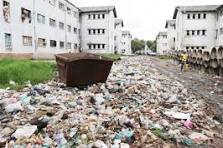Zimbabwe’s Bold War on Drugs
- Southerton Business Times

- Aug 18, 2025
- 4 min read

The Second Republic under President Emmerson Dambudzo Mnangagwa has boldly set Zimbabwe on an irreversible trajectory towards Vision 2030, a national goal of becoming an upper-middle-income economy. At the heart of this developmental vision lies a simple yet profound truth: Zimbabwe’s young people are the torchbearers of tomorrow. However, their potential risks being suffocated by the insidious grip of drug and substance abuse—a menace that not only erodes families and communities but also threatens the socio-economic fabric of the nation.
Drugs are not just a health problem—they are a national development crisis. Every sachet of illicit substances consumed robs the nation of productive hands that could be building industries, tilling the land, innovating in technology, or leading in education. President Mnangagwa has consistently stressed that without a sober, disciplined, and focused youth, Zimbabwe’s aspirations of attaining Vision 2030 will remain elusive.
“Drugs destroy the very foundation of our future,” the President remarked recently, emphasizing that Vision 2030 requires a healthy, empowered, and productive generation. “We cannot talk of prosperity while our young people are chained by addiction.”
In essence, the war against drugs is not a peripheral campaign—it is central to Zimbabwe’s survival and success. In recognition of the devastating effects of drug abuse, First Lady Dr. Auxillia Mnangagwa has taken a compassionate and proactive role in the national anti-drug strategy. The establishment of the Mbare Rehabilitation Centre is a critical milestone, offering a second chance to young people trapped in the cycle of addiction. The centre is more than just a facility; it is a beacon of hope, symbolizing the motherly care of the First Lady for the nation’s sons and daughters.
“We cannot afford to lose our children to drugs,” Dr. Mnangagwa has said. “Every child deserves the chance to recover, to dream again, and to contribute meaningfully to our beloved Zimbabwe.”
Through rehabilitation, counselling, and skills training, the centre ensures that the youth can be reintegrated into society as productive citizens aligned with national priorities. This initiative demonstrates how the Second Republic is not only punitive towards drug abuse but also restorative, focusing on rebuilding lives and preserving Zimbabwe’s human capital. The Second Republic has demonstrated that curbing drugs is not optional—it is a moral and national imperative. President Mnangagwa has directed an all-government approach to crush the scourge. This resolve stems from the understanding that drugs are not merely an individual problem but a collective national threat. In his vision of an empowered, prosperous, and sovereign Zimbabwe, there is no room for indecorous habits that derail progress.
The anti-drug stance is part of the wider governance philosophy of the New Dispensation: discipline, patriotism, and productivity as the bedrock of national transformation. At the frontline of this battle stands the Zimbabwe Republic Police (ZRP), intensifying anti-smuggling campaigns at borders, investigating drug peddlers, dismantling distribution networks, and ensuring that culprits face the full wrath of the law. The ZRP has carried out nationwide raids, arrested dealers, and confiscated harmful substances in an unprecedented demonstration of state capacity.
“Drugs will not find safe haven in Zimbabwe,” Police Commissioner-General Stephen Mutamba recently declared. “Our officers are on high alert to protect the nation from this destructive scourge.” Beyond law enforcement, the ZRP has also partnered with communities, schools, and churches in spreading awareness about the dangers of drugs—an indication that the fight is both hard and soft power combined.
This war is not the responsibility of one institution alone. Various government agencies have joined hands in a united front. The Ministry of Health and Child Care is playing a pivotal role in treatment and awareness, while the Ministry of Primary and Secondary Education integrates anti-drug education into schools. The Ministry of Youth, Sport, Arts and Recreation has stepped up initiatives to provide productive alternatives for young people, creating opportunities in arts, sports, and entrepreneurship.
Together, these agencies are weaving a web of prevention, enforcement, and rehabilitation that places Zimbabwe at the forefront of global anti-drug campaigns. Zimbabwe’s efforts under President Mnangagwa are resonating beyond national borders. Recently, Vice President General (Rtd) Dr. Constantino Chiwenga led a massive anti-drug campaign programme at Machipisa, reinforcing the government’s seriousness and signalling continuity in leadership commitment.
“The youth are our strength, and we cannot allow that strength to be weakened by drugs,” VP Chiwenga told the gathering. “Vision 2030 will only be realized if our young people remain sober, patriotic, and hardworking.” Such initiatives showcase Zimbabwe as a model for other developing nations grappling with drug challenges. While many countries struggle to frame effective responses, Zimbabwe under the Second Republic is demonstrating a balanced strategy of enforcement, rehabilitation, and education.
Beyond rehabilitation and policing, the government has rolled out community sensitization drives, youth empowerment programs, and partnerships with civil society organizations. Anti-drug messages are being integrated into national events, school activities, and even faith-based platforms. The idea is clear: the anti-drug campaign is everyone’s responsibility, and its success will be everyone’s victory.





Comments